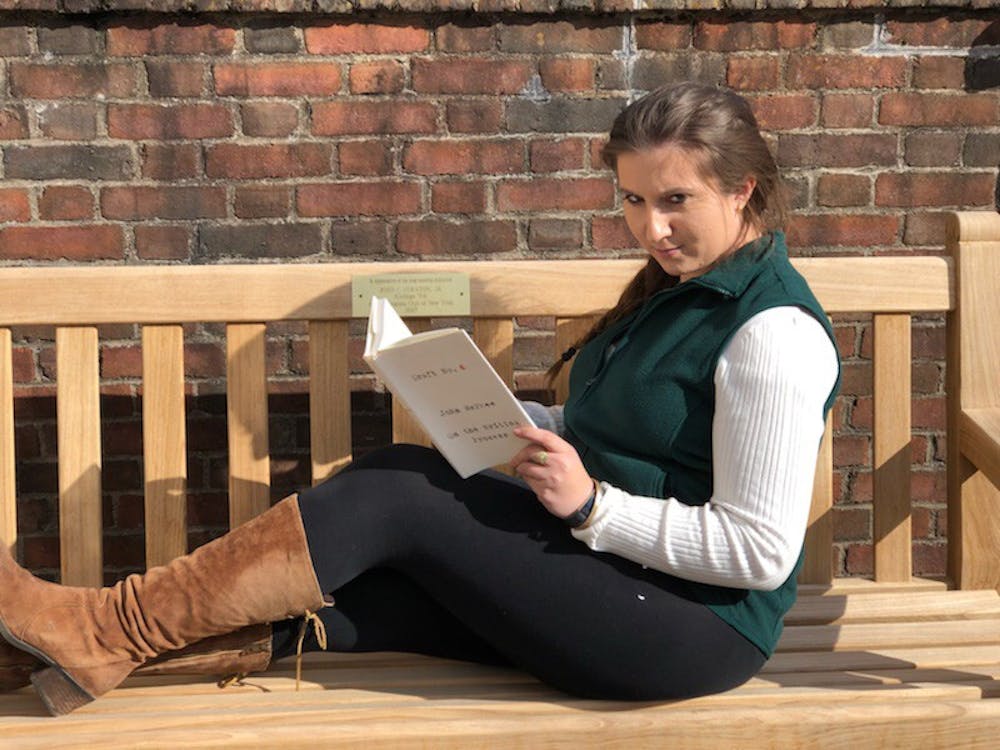Rule #471: No writer of The Cavalier Daily is to ever use an Oxford comma in any article.
When I saw this rule on the dimly-lit “Welcome” PowerPoint presentation for new staff writers, my comma-lusting heart crinkled, knowing about half its material had vanished. As someone who went to Catholic school, trifectas of nouns and adjectives were a staple of my education. “Father, Son and Holy Spirit,” for example, was a constant reminder.
Getting to the University. was no different.
“I promise not to lie, cheat or steal.” Sound familiar?
It became that deleting an Oxford comma from my Holy Trinity of pretentious verbs or adjectives was physically painful for me, and would only be done in the most dire of character counts, such as a college admissions essay or a fire tweet.
When I asked why Oxford commas were so taboo, I was told that many premier institutions of writing strictly forbid the use of this provocative punctuation, such as The Washington Post and The New York Times. So instead, they prefer to make their reader delve into the context clues of the article and follow the path to reason — an escape room of literature, if you will.
Of course, the Oxford comma is not always needed when analyzing a single sentence. “The Rotunda is big, white and heavy” is a clear if not obvious example of this, and as an English major at the University, I really should be able to do better. Sorry, mom.
Since my editors would drop-kick me into next semester if I used an Oxford comma in an article on the Oxford comma, I will refrain from such rumpus. I will instead warn you, dear reader, of the dangers of forgetting this simple comma.
Example 1: “In his speech he thanked his parents, Castro and Stalin.”
With the Oxford comma, the young man in question is simply a sociopath who venerates Western dictators. And a mama’s boy.
WITHOUT the Oxford comma, this sentence suggests not only that time-travel is possible, but that this secret Soviet technology was used to bring together the homosexual love of two socialist men born generations apart. Additionally, they seemed to have conceived a child. Good for them.
Which is better? Who’s to say. But the Oxford comma makes more sense. For now at least. We’ll see where modern medicine takes us.
Also, why is the Oxford comma so taboo but people just use the ellipsis willy-nilly? For those of you that don’t know, the ellipsis is the “...” at the end of a phrase that suggests an implication should be drawn from the sentence. This tactic, while effective, is most commonly employed by 14-year-old girls trying to hint at her friends that she’s mad. It is had also been observed frequently in the communications of the frat boy.
Now maybe I’m just a pretentious snob, but I would rather sound educated and concise by utilizing the Oxford comma rather than employing the ellipsis. But what do I know. Besides the definition of the ellipsis.
Still don’t believe that the Oxford comma is crucial to the evolution of the English language? Yet another example, sweet reader: “My favorite documentary follows the story of Bob Ross, the star of ‘My Strange Addiction’ and the 42nd president of the United States.”
With the Oxford comma, this makes for a weird but plausible Amazon docu-series that’s trying to compete with Netflix’s “Making of a Murderer.” Without the Oxford comma, this sentence suggests that our beloved painter is an addict to pool floaties or talcum powder and is also Bill Clinton.
The moral of the story is clear: The Oxford comma saves lives. It saved Bob Ross. Don’t you want to save Bob Ross?





